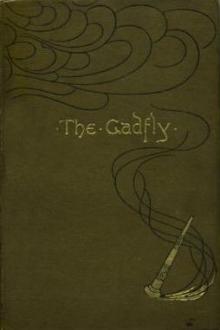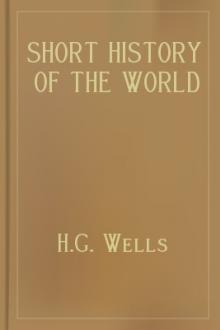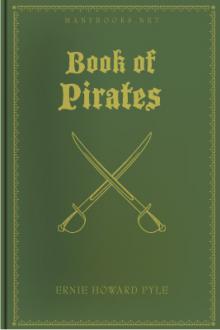Genre History. Page - 20

tained as many ships as they now saw. So it was not surprising that at first they were afraid and fled. But they did not lose courage for long. They soon returned and many battles were fought.
The Romans seemed to think that they won all these battles, but the Britons were not at all sure of it. Certainly a great many people on both sides were killed. If the Britons had been less brave than they were, they would have been very badly beaten, for the Romans wore strong armor and carried shields made of steel, while the Britons had little armor, if any at all, and their shields were made of wood covered with skins of animals. The Roman swords too were strong and sharp, while those of the Britons were made of copper. Copper is a very soft metal, and swords made of it are easily bent and so made useless.
The Britons at this time were divided into many tribes, each following their own chief. They often used to quarrel among themselves. Now, however, they joined together against their great enemy and c

m 295 416. Zeugma 295 417. Pros to semainomenon 296 418. Apposition 296 419. Collectiveness 297 420. Reduction 297 421. Determination of part of speech 298 422-424. Convertibility 298, 299 425. The Blacks of Africa 299 426. None of your ifs 300 427. Convertible words numerous in English 300
CHAPTER II.
SYNTAX OF SUBSTANTIVES.
428. Rundell and Bridge's 301 429. Right and left 301
CHAPTER III.
SYNTAX OF ADJECTIVES.
430. Pleonasm 302 431. Collocation 302 432. Government 302 433. More wise, wiser 303 434. The better of the two 304 435. Syntax of adjectives simple 304
CHAPTER IV.
SYNTAX OF PRONOUNS.
436. Pleonasm 305 437. Father's, not father his 305 438. Pleonasm and

ir, with blue eyes, a curled mustache, hairnaturally wavy and parted in the middle, he recalled the hero of thepopular romances.
It was one of those sultry, Parisian evenings when not a breath ofair is stirring; the sewers exhaled poisonous gases and therestaurants the disagreeable odors of cooking and of kindred smells.Porters in their shirt-sleeves, astride their chairs, smoked theirpipes at the carriage gates, and pedestrians strolled leisurelyalong, hats in hand.
When Georges Duroy reached the boulevard he halted again, undecidedas to which road to choose. Finally he turned toward the Madeleineand followed the tide of people.
The large, well-patronized cafes tempted Duroy, but were he to drinkonly two glasses of beer in an evening, farewell to the meagersupper the following night! Yet he said to himself: "I will take aglass at the Americain. By Jove, I am thirsty."
He glanced at men seated at the tables, men who could afford toslake their thirst, and he scowled at them. "Rascals!"

ergy did he do this, that he received from his antagonists themost complimentary sobriquet of the one hundred thousand men .Wherever Napoleon made his appearance in the field, his presencealone was considered equivalent to that force.
The following proclamation rang like a trumpet charge over thehills and valleys of France. "Frenchmen! You have been anxious forpeace. Your government has desired it with still greater ardor.Its first efforts, its most constant wishes, have been for itsattainment. The English ministry has exposed the secret of itsiniquitous policy. It wishes to dismember France, to destroy itscommerce, and either to erase it from the map of Europe, or todegrade it to a secondary power. England is willing to embroil allthe nations of the Continent in hostility with each other, that shemay enrich herself with their spoils, and gain possession of thetrade of the world. For the attainment of this object she scattersher gold, becomes prodigal of her promises, and multiplies herintri

at the very idea of publication in print had hardly occurred to many writers' minds. When the book appeared, both its main contributors, Surrey and Wyatt, had been long dead, as well as others (Sir Francis Bryan and Anne Boleyn's unlucky brother, George Lord Rochford) who are supposed to be represented. The short Printer's Address to the Reader gives absolutely no intelligence as to the circumstances of the publication, the person responsible for the editing, or the authority which the editor and printer may have had for their inclusion of different authors' work. It is only a theory, though a sufficiently plausible one, that the editor was Nicholas Grimald, chaplain to Bishop Thirlby of Ely, a Cambridge man who some ten years before had been incorporated at Oxford and had been elected to a Fellowship at Merton College. In Grimald's or Grimoald's connection with the book there was certainly something peculiar, for the first edition contains forty poems contributed by him and signed with his name, while in the

feet, everything about him was too much chiseled, overdelicate. Sitting still, he might have been taken for a very pretty girl masquerading in male attire; but when he moved, his lithe agility suggested a tame panther without the claws.
"Is that really it? What should I do without you, Arthur? I should always be losing my things. No, I am not going to write any more now. Come out into the garden, and I will help you with your work. What is the bit you couldn't understand?"
They went out into the still, shadowy cloister garden. The seminary occupied the buildings of an old Dominican monastery, and two hundred years ago the square courtyard had been stiff and trim, and the rosemary and lavender had grown in close-cut bushes between the straight box edgings. Now the white-robed monks who had tended them were laid away and forgotten; but the scented herbs flowered still in the gracious mid-summer evening, though no man gathered their blossoms for simples any more. Tufts of wild parsley and columbin

counterpane!"
Doctor Ward sighed, as he shook his head. "I don't pretend to know now all you mean."
Calhoun whirled on him fiercely, with a vigor which his wasted frame did not indicate as possible.
"Listen, then, and I will tell you what John Calhoun means--John Calhoun, who has loved his own state, who has hated those who hated him, who has never prayed for those who despitefully used him, who has fought and will fight, since all insist on that. It is true Tyler has offered me again to-day the portfolio of secretary of state. Shall I take it? If I do, it means that I am employed by this administration to secure the admission of Texas. Can you believe me when I tell you that my ambition is for it all--all, every foot of new land, west to the Pacific, that we can get, slave or free? Can you believe John Calhoun, pro-slavery advocate and orator all his life, when he says that he believes he is an humble instrument destined, with God's aid, and through the use of such inst

is a length of time that absolutely overpowers the imagination.
Before that vast period of separate existence, the sun and earth and the other planets that circulate round the sun may have been a great swirl of diffused matter in space. The telescope reveals to us in various parts of the heavens luminous spiral clouds of matter, the spiral nebulae, which appear to be in rotation about a centre. It is supposed by many astronomers that the sun and its planets were once such a spiral, and that their matter has undergone concentration into its present form. Through majestic aeons that concentration went on until in that vast remoteness of the past for which we have given figures, the world and its moon were distinguishable. They were spinning then much faster than they are spinning now; they were at a lesser distance from the sun; they travelled round it very much faster, and they were probably incandescent or molten at the surface. The sun itself was a much greater blaze in the heavens.
{6}

but they laughed at them. We only fought for our State rights, they for Union and power. The South fell battling under the banner of State rights, but yet grand and glorious even in death. Now, reader, please pardon the digression. It is every word that we will say in behalf of the rights of secession in the following pages. The question has been long ago settled and is buried forever, never in this age or generation to be resurrected.
The vote of the regiment was taken, and we all voted to go to Virginia. The Southern Confederacy had established its capital at Richmond.
A man by the name of Jackson, who kept a hotel in Maryland, had raised the Stars and Bars, and a Federal officer by the name of Ellsworth tore it down, and Jackson had riddled his body with buckshot from a double- barreled shotgun. First blood for the South.
Everywhere the enemy were advancing; the red clouds of war were booming up everywhere, but at this particular epoch, I refer you to the history of that period.

nd of Tortuga free from the obnoxious strangers, down upon Hispaniola they came, flushed with their easy victory, and determined to root out every Frenchman, until not one single buccaneer remained. For a time they had an easy thing of it, for each French hunter roamed the woods by himself, with no better company than his half-wild dogs, so that when two or three Spaniards would meet such a one, he seldom if ever came out of the woods again, for even his resting place was lost.
But the very success of the Spaniards brought their ruin along with it, for the buccaneers began to combine together for self-protection, and out of that combination arose a strange union of lawless man with lawless man, so near, so close, that it can scarce be compared to any other than that of husband and wife. When two entered upon this comradeship, articles were drawn up and signed by both parties, a common stock was made of all their possessions, and out into the woods they went to seek their fortunes; thenceforth they were